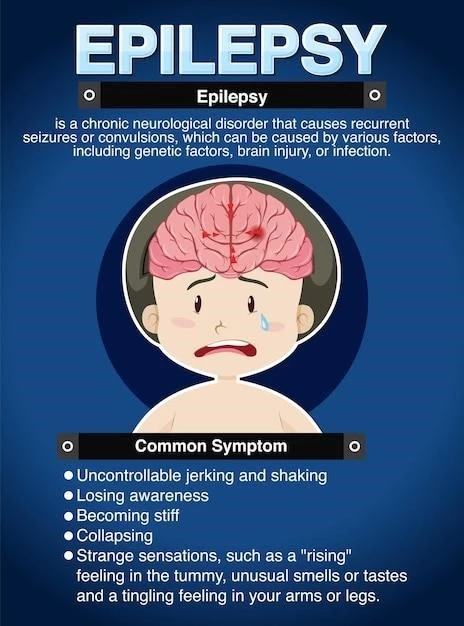Dysencephalia Splachnocystica or Meckel-Gruber Disease
Welcome to the comprehensive guide on Dysencephalia Splachnocystica or Meckel-Gruber Disease. This article will provide valuable insights into this rare genetic disorder, covering a range of crucial aspects for better understanding and management.
Introduction to Dysencephalia Splachnocystica or Meckel-Gruber Disease
Dysencephalia Splachnocystica, also known as Meckel-Gruber Disease, is a rare and severe genetic disorder characterized by a combination of developmental defects. This condition is associated with high perinatal mortality rates due to the presence of multiple abnormalities.
Individuals affected by this disorder may exhibit brain abnormalities such as encephalocele, neural tube defects, and polydactyly. Renal abnormalities and hepatic ductal plate abnormalities are also common features of Dysencephalia Splachnocystica.
One of the hallmark signs used for diagnosis is the ‘molar tooth sign,’ which refers to the specific appearance of the midbrain on brain imaging studies.
Understanding the genetic aspects of Meckel-Gruber Disease, as well as the specific developmental defects associated with this condition, is crucial for accurate diagnosis and effective management strategies. Stay tuned to explore more about this complex disorder and learn about the diagnostic challenges and counseling approaches for affected families.
Understanding Congenital Malformations in Meckel-Gruber Disease
Congenital malformations in Meckel-Gruber Disease encompass a wide range of anomalies affecting various organ systems. These malformations are typically present from birth and contribute to the complex clinical presentation of the disorder.
Common congenital malformations seen in Meckel-Gruber Disease include neural tube defects, such as encephalocele, which involve the protrusion of brain tissue through an opening in the skull. Additionally, polydactyly, the presence of extra fingers or toes, is a frequent feature in affected individuals.
Abdominal cysts, renal abnormalities, and hepatic ductal plate abnormalities are also observed in Meckel-Gruber Disease. These defects can significantly impact the overall health and quality of life of individuals affected by this condition.
Understanding the spectrum of congenital malformations associated with Meckel-Gruber Disease is essential for healthcare providers involved in the diagnosis and management of affected individuals. Early recognition of these malformations can aid in timely interventions and appropriate counseling for families facing this rare genetic disorder.
Perinatal Mortality and Meckel-Gruber Disease
Perinatal mortality is a significant concern in Meckel-Gruber Disease, with affected individuals facing a high risk of mortality before, during, or shortly after birth. The presence of multiple developmental defects and organ abnormalities contributes to the challenges associated with perinatal care in these cases.
Due to the severity of the condition and the complexity of associated malformations, perinatal mortality rates in Meckel-Gruber Disease are higher compared to many other genetic disorders. This underscores the importance of early detection and intervention to address potential complications and optimize outcomes.
Healthcare providers must be vigilant in recognizing the signs and symptoms of Meckel-Gruber Disease during pregnancy, childbirth, and the neonatal period. Providing appropriate support and counseling to families affected by this rare genetic disorder is crucial in navigating the emotional and medical challenges associated with perinatal mortality.
Genetic Aspects of Meckel-Gruber Disease
Meckel-Gruber Disease is primarily inherited in an autosomal recessive pattern, meaning that individuals must inherit two copies of the mutated gene (one from each parent) to manifest the disorder. The genetic basis of this condition typically involves mutations in genes that play essential roles in early development.
Genetic testing and counseling are vital components in the management of Meckel-Gruber Disease, helping families understand the risk of passing on the condition to future generations. Identifying carriers of the mutated gene and providing appropriate guidance can support informed family planning decisions.
Advances in genetic research have enabled healthcare professionals to better understand the molecular mechanisms underlying Meckel-Gruber Disease. By uncovering the genetic intricacies of the disorder, researchers aim to develop improved diagnostic strategies and potentially targeted treatments in the future.
Specific Developmental Defects in Meckel-Gruber Disease
Meckel-Gruber Disease is characterized by a spectrum of specific developmental defects that impact various systems in the body. These defects are crucial diagnostic indicators and contribute to the complexity of the disorder.
One of the hallmark features of Meckel-Gruber Disease is the presence of brain abnormalities, such as encephalocele, where brain tissue protrudes through openings in the skull. Additionally, neural tube defects, which affect the spinal cord development, are common in affected individuals.
Furthermore, polydactyly, the presence of extra fingers or toes, is a recognizable trait in Meckel-Gruber Disease. These developmental defects, along with abdominal cysts and other malformations, collectively define the clinical presentation of this rare genetic disorder.
Understanding the specific developmental defects associated with Meckel-Gruber Disease is crucial for healthcare providers involved in the diagnosis and management of affected individuals. By recognizing these distinctive features, medical professionals can enhance patient care and provide appropriate support to affected families.
Renal and Hepatic Abnormalities in Meckel-Gruber Disease
Renal and hepatic abnormalities are common manifestations in Meckel-Gruber Disease, adding to the complexity of the disorder and impacting overall health outcomes. Renal abnormalities may include cystic kidneys or renal agenesis, leading to potential renal dysfunction and complications.
Hepatic ductal plate abnormalities, characterized by the malformation of the bile ducts in the liver, are also frequently observed in individuals with Meckel-Gruber Disease. These abnormalities can contribute to hepatic dysfunction and may necessitate specialized medical management.
Early recognition and monitoring of renal and hepatic abnormalities are essential in the care of individuals with Meckel-Gruber Disease. Close coordination between healthcare providers, including nephrologists and hepatologists, is crucial for implementing appropriate interventions and optimizing patient outcomes.
Understanding the impact of renal and hepatic abnormalities on individuals with Meckel-Gruber Disease can aid in the development of tailored treatment plans and comprehensive care strategies to address the complex needs of affected individuals and their families.
Diagnostic Challenges and Management Strategies
Diagnosing Meckel-Gruber Disease presents significant challenges due to the complexity and rarity of the condition. The presence of multiple developmental defects requires a multidisciplinary approach involving geneticists, radiologists, and other specialists for accurate assessment.
Key diagnostic tools include imaging studies to identify brain abnormalities like encephalocele and the characteristic ‘molar tooth sign.’ Genetic testing plays a crucial role in confirming the diagnosis by detecting mutations associated with Meckel-Gruber Disease.
Management strategies for Meckel-Gruber Disease focus on interdisciplinary care to address the diverse needs of affected individuals. This may involve supportive treatments for organ abnormalities, surgical interventions for specific defects, and ongoing monitoring to detect and manage complications.
Healthcare providers must work collaboratively to develop personalized care plans tailored to the unique challenges presented by Meckel-Gruber Disease. By staying informed about the latest advancements in diagnostic techniques and treatment modalities, medical professionals can offer comprehensive care and support to individuals and families affected by this rare genetic disorder.
Prognosis and Counseling for Families
Understanding the prognosis of Meckel-Gruber Disease is essential for healthcare providers to offer informed guidance and support to affected families. The condition’s severity, coupled with the presence of multiple abnormalities, often leads to a guarded prognosis with high perinatal mortality rates.

Genetic counseling plays a crucial role in assisting families in navigating the emotional and practical implications of a Meckel-Gruber Disease diagnosis. It provides information on the genetic aspects of the disorder, recurrence risks, and family planning options.
Supportive counseling services can help families cope with the challenges posed by the condition, including perinatal loss, complex medical decisions, and long-term care considerations. Empathetic communication and access to resources are key components of effective counseling for families facing Meckel-Gruber Disease.
Healthcare providers should ensure that families receive comprehensive and compassionate care throughout the diagnostic, management, and counseling processes. By offering tailored support and resources, medical professionals can empower families to make informed decisions and navigate the complexities of caring for a child with Meckel-Gruber Disease.
Conclusion
In conclusion, Dysencephalia Splachnocystica, or Meckel-Gruber Disease, represents a complex genetic disorder characterized by congenital malformations, developmental defects, and high perinatal mortality rates. The condition’s genetic basis, diagnostic challenges, and management strategies underscore the need for a multidisciplinary approach to care.
Healthcare providers play a vital role in recognizing the specific features of Meckel-Gruber Disease, including brain abnormalities, polydactyly, renal and hepatic anomalies, and the distinctive ‘molar tooth sign.’ Early diagnosis, coordinated management plans, and supportive counseling are essential for optimizing outcomes and enhancing quality of life for affected individuals and their families.
By staying informed about the genetic aspects, developmental defects, and associated complications of Meckel-Gruber Disease, medical professionals can offer personalized care, guidance, and resources to support families throughout their healthcare journey. Collaboration, compassion, and a commitment to holistic care are key in addressing the unique challenges posed by this rare and devastating genetic disorder.
